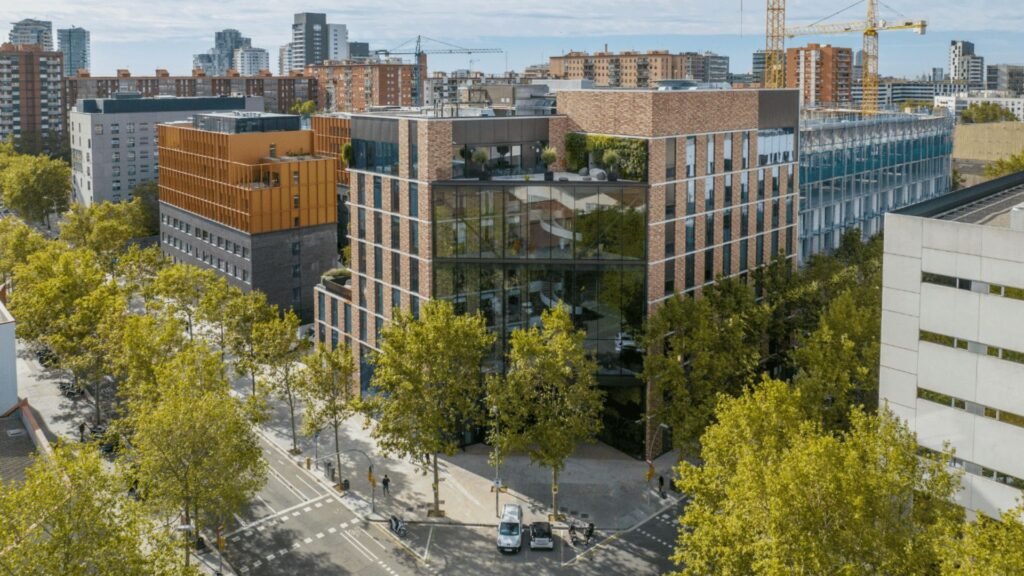Many students ask this question. The answer depends on career goals. It depends on industry demands. It depends on how much time and money a student is ready to invest.
What Is the Master of Science in Supply Chain Management?
The master of Science in supply chain management is a business degree. It focuses on the systems that move goods from one place to another. This includes planning, buying, making, storing, and delivering.
The program teaches how to manage processes, handle logistics, work with suppliers, control costs, cover global trade, and explain how digital systems support supply chains.
Why Are Supply Chain Skills in Demand?
The master of Science in supply chain management helps students learn skills that are in demand. Many companies want supply chain experts. They want people who can solve delivery problems. They want people who can save money and improve systems.
Many companies are also changing how they work. They now depend on fast and smart delivery systems. A supply chain issue can delay business, raise costs, and reduce profits. That is why supply chain experts are important.
Program Duration Options
The master of Science in supply chain management can be completed in two years. Some students choose a faster option. The 1 year master’s in supply chain management is also available. It is intense. It is fast. But it gives the same degree.
The 1 year master’s in supply chain management is good for students who want to return to work fast. It is also good for professionals who want a quick upgrade. It is shorter. But it is still full of real knowledge.
Cost and Financial Considerations
The cost of a master of Science in supply chain management can vary. It depends on the school. It depends on the country. It depends on the format. Full-time study is more expensive. Part-time and online courses may cost less. But many students get scholarships or financial aid.
The average tuition for a graduate degree is over $20,000 per year. Living costs add more. Books and materials cost extra. Travel and housing must be planned too. But most students say the investment is worth it.
Career Opportunities and Growth
Job growth in supply chain careers is high. Logistics jobs are growing faster than the average. This is because companies need better systems. They need to manage risk. They need to move products faster.
With a master of Science in supply chain management, students can apply for many jobs. They can work as logistics managers. They can work as procurement officers. They can work in transportation. They can work in inventory planning. They can also enter consulting.
Some graduates work for global brands. Some work for factories. Some work in tech. Some join retail. Others go into healthcare or aviation. Supply chain experts are needed everywhere.
Salary Expectations
The salary for someone with a master of Science in supply chain management is usually high. Entry-level jobs pay well, mid-level jobs pay more, and salaries rise with experience. In some countries, experts can earn six figures.
But the return on investment is not just about money. It is also about knowledge. It is about confidence. It is about career growth. It is about leadership.
Why Study in France?
Many students choose to study supply chain in Europe. France is one of the top choices. The best university for supply chain management in France offers global exposure. It offers diverse classmates. It offers strong industry links.
France has many supply chain management courses in France. Some are one-year. Some are two-year. Some are research-based. Some are hands-on. Some are full-time. Some are part-time. Students can choose the right one for them.
One reason students choose France is its location. It is close to global companies. It is also part of the European Union. This opens up many job options after graduation.
Internships and Industry Connections
The best university for supply chain management in France also offers internships. These help students learn in real companies. They help students connect with hiring managers. They give real experience.
Students also choose programs that combine supply chain with technology. The msc data Science and ai is one such example. This course teaches how to use data and AI to solve supply chain problems.
Modern supply chains depend on data. They use AI to predict demand. They use AI to manage routes. They use data to reduce waste. That is why the msc data Science and ai is a smart option for students who love tech.
Example Salary Table
| Job Title | Avg. Annual Salary (USD) |
| Supply Chain Analyst | $65,000 |
| Logistics Manager | $85,000 |
| Procurement Manager | $95,000 |
| Operations Director | $120,000 |
| Supply Chain Consultant | $100,000 |
What You Will Learn
Students often ask what they will learn in the program. The answer is clear: They learn how products move, how suppliers work, how warehouses operate, how data helps plan supply, how to solve delays, how to handle customs, finance, contracts, and quality control.
Learning Formats and Tools
Many students ask about class formats. Some classes are lectures. Some are case studies. Some are group projects. Some are solo assignments. Some are online. Some are in labs. Some are in companies. Every format gives real knowledge.
Technology is a big part of supply chain management. The master of Science in supply chain management includes software training. Students learn ERP tools. They learn data dashboards. They learn planning systems. They learn AI models. They learn how to use real software from the industry.
Faculty, Peer Learning, and Soft Skills
The faculty is international. Teachers come from the business. They bring experience. They bring stories. They bring lessons from failure and success. They help students connect theory to practice.
Peer learning is strong too. Students come from many countries. They share ideas. They debate. They work together. This helps students learn faster. It also builds a global mindset.
The master of Science in supply chain management also teaches soft skills. These include communication. These include leadership. These include teamwork. These skills matter in real jobs.
Career Support and Student Life
Many students also want to know about career services. TBS Education supports students through a career office. This team helps with resumes, interview prep, connecting students to companies, organizing job fairs, and inviting speakers from industry.
Internships are part of the program. Some are full-time. Some are part-time. Some are in France. Some are abroad. All are real-world. All help students apply what they learn. Many students get full-time offers after internships.
Some students ask what they can do after graduation. Many get jobs. Some go into PhD. Some start companies. Some switch industries. Some move to different countries. The degree opens many doors.
The alumni community is large, global, and active. It offers advice, mentoring, and job tips, and many students stay in touch long after they graduate.
Students are also part of clubs. Some clubs focus on logistics. Some focus on tech. Some focus on consulting. Some focus on culture. Clubs help students relax. They also help students network.
TBS Education offers events. These include conferences. These include career panels. These include hackathons. These include guest lectures. These events add to learning. They add to fun. They add to student life.
Global Exposure and Support
Students also get to travel. Some courses include trips. Some include study tours. Some include company visits. These help students see real supply chains.
TBS Education is based in Toulouse. The school has a strong name. It is respected. It is connected. It has partners across the world. It is one of the best universities for supply chain management in France.
Indian students find a home here. They get help with visas. They get help with housing. They get help with papers. They get support all year. Many Indian students also find jobs in France after study.
Preparing for the Future
The supply chain world is changing. Old ways no longer work. Now, supply chains need speed. They need accuracy. They need flexibility. They need data. They need smart people.
The master of Science in supply chain management trains students to handle change. It trains them to handle shocks. It trains them to lead teams. It trains them to use data. It trains them to think clearly.
This is why demand for these graduates is rising. Companies want experts. They want smart managers. They want people who can fix problems. They want people who can lead.
Final Thoughts
The master of Science in supply chain management is a great step. It leads to growth, global work, new roles, more pay, and better skills.
If students want to move fast, they can choose the 1 year master’s in supply chain management. It saves time. It is useful for professionals. It is good for students who know what they want.
The MSc Data Science and AI is another option. It teaches coding. It teaches machine learning. It teaches modeling. It teaches how to work with data. It teaches how to build smart systems. This is very useful in supply chains.
Students who finish these programs are ready. They are ready to plan. They are ready to deliver. They are ready to lead. They are ready to grow.
TBS Education offers strong supply chain management courses in France. The courses are global, current, and job-ready.
The future is global. The future is digital. The future needs strong supply chains. And strong supply chains need strong people.
TBS Education is here to build those people.





